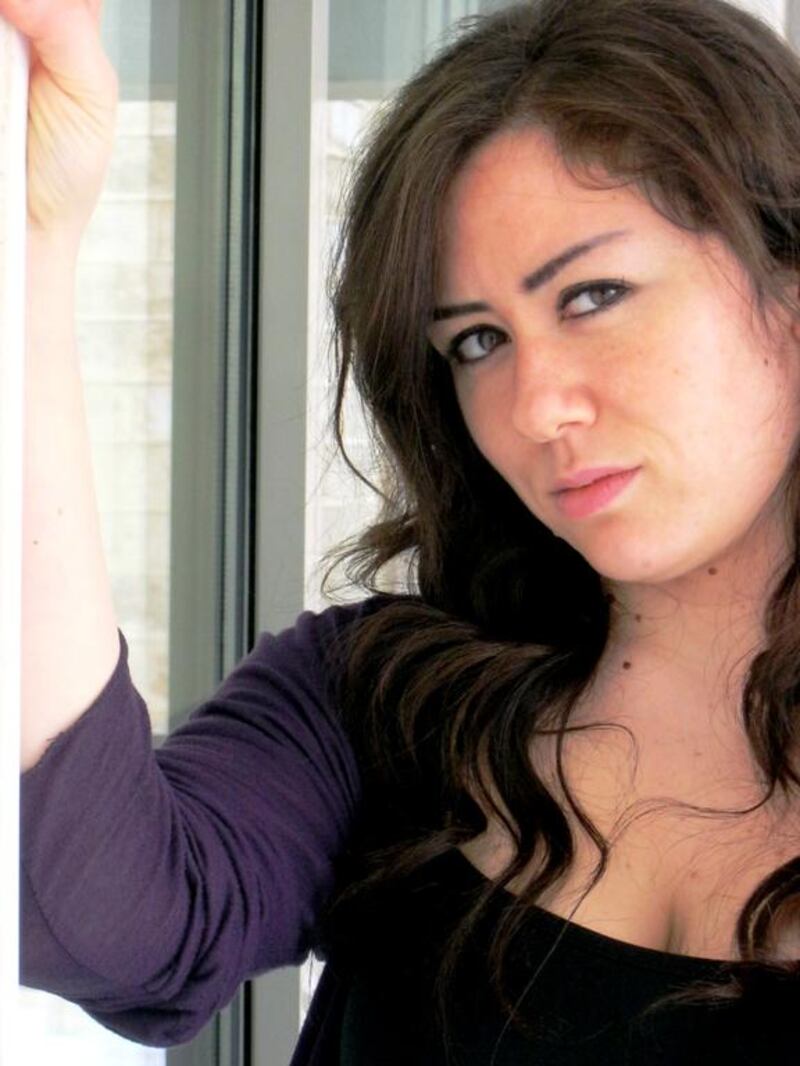Jana El Hassan is a 28-year-old novelist and reporter for the Beirut newspaper The Daily Star. Her semi-autobiographical second book, Me, She and the Other Women, is shortlisted for this year’s International Prize for Arabic Fiction. Earlier this year, she wrote candidly about growing up in a “tribe-like family” in a town outside Tripoli, being married at 18, having a child at 19 and then gathering the strength to break away and move to Beirut as “a jobless 23-year-old divorced woman with $400 [Dh1,470] in her pocket and a child to raise”. Hassan is currently working on her third novel and will be at the Sharjah International Book Fair to discuss her work.
What is life like now, as a mother, journalist and author?
It is a roller coaster in terms of the speedy pace of modern life. But if you know what you want and organise your priorities and never make excuses for yourself to avoid your responsibilities, you will be able to manage. I see life as a journey rather than a destination. I am not willing to be infatuated by stop signs. I also try to surround myself with good and positive people and I am blessed to have some real friends in my life. As for being a mother, it is a constant act of love and it gives you tremendous power. You feel like someone is relying on you and you want to do your best for them. I can say I learn from my daughter; children know much more than we think they do and they can surprise us all the time.
What advice would you give aspiring writers?
I would just tell them that it is possible. I have had this dream since I was a teenager and some five or six years ago when I decided to seriously go after it, a lot of people would say you cannot do it: “This is the worst choice” or “People do not read” or even “Who do you think you are?” And here I am now; I did it – or, at least, I am on the right track. One just has to believe in himself or herself, or else no one will believe in you – especially all the ladies out there. As for practicalities, I would tell writers-to-be not to be afraid of making mistakes and to deal with writing as a profession. Read a lot of books and treat your projects with respect and honesty. Write as you should live, with all your means, and you will get there.
Lebanon is this year’s guest of honour: why do you think the country has so many great writers?
Lebanon is a country with a complex and diverse society. The clashes and the long civil war the country had witnessed, as well as the interaction we have with various sects and social classes, emphasises us to raise a lot of questions, which we may seek answers for in writing. We live in a country that was wounded by its own sons. We want to know what really happened, whether we belong to the old or new generation, and books are a means to revive and relive differently our daily affairs.
Does being Lebanese mean anything in particular to you?
I can’t go for the sugar-coated slogans about my country or refer to it as a “tasty dish of tabbouleh”. It is painful to be Lebanese; it is like having to live a double life all the time because the country succeeded in upholding a bright facade but within it is too corrupted and deceiving. Just imagine a man standing at the edge of a cliff all the time and struggling not to fall; this is what it is like to be Lebanese.
Are you looking forward to the book fair?
Yes, I haven’t been to the Sharjah Book Fair before. I am very excited and expecting fruitful interaction with the readers and some writers, of course … Talking about writers, I am seeking the American novelist Philip Roth actually. I know he won’t be in Sharjah but it is a dream inhibiting me: I want to meet the man.
How does the political situation in Lebanon affect its literary community – if such a community exists?
I would like to think of writing as a very private and individual experience. We live in a country where politics is unavoidable; it is like the citizens’ daily bread. I belong to the post-war generation and I have to deal with politics due to my work as a journalist, but I never see myself as part of a community whether cultural or even political. I believe that once you define yourself as part of a “we”, you get restrained and lose a part of your freedom. Writing requires liberty.
• Jana El Hassan will discuss IPAF Additions and Testimonies at 6pm, November 12, at the Book Forum, Sharjah Expo Centre
artslife@thenational.ae
Follow us @LifeNationalUAE
Follow us on Facebook for discussions, entertainment, reviews, wellness and news.





